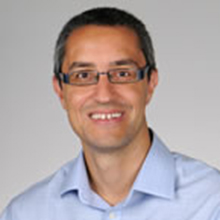April 9, 2020
Dealing with Fatigue – Brain Tumor Treatment

Fatigue is the most common side effect of brain tumor treatment. All the major forms of cancer treatment, including chemotherapy, radiation, and even surgery recovery can cause fatigue.
Fatigue is more than simple tiredness. It is a widely-recognized medical condition, marked by extreme lack of energy, which can cause inability to function in daily life. It may be acute – lasting a short time in connection with a direct cause, or chronic — becoming a long-term fact of life for someone affected.
According to the NIH, fatigue related to cancer is different than what healthy people feel. Healthy people’s fatigue is generally relieved by sleep and rest. But for someone with a brain tumor, especially if they’re undergoing treatment, it is normal to experience some fatigue all the time, and for it to become very serious from a light amount of activity.
Even compared with other cancers, brain tumors can lead to especially severe cases of fatigue. Dr. David Cachia of the Medical University of South Carolina told Cancer Network that one study found 96% of patients with high-grade gliomas to experience moderate to severe fatigue. It’s not limited to the worst brain tumors either. Another study found that 39% of patients with lower-grade gliomas, interviewed more than 3 years after finishing treatment, still reported bouts of severe fatigue.

Dr. Cachia pointed out a few other contributing factors for fatigue. Patients in active treatment are more than twice as likely to experience fatigue. Patients with many other symptoms, such as pain, distress, or weakness, were more likely to experience fatigue. This is called symptom clustering. And women are 2.5 times more likely than men to report severe fatigue.
If you’re experiencing extreme or worsening fatigue, that’s something to speak with your doctor about. You may be experiencing side effects from medication or it may be a sign of something that warrants medical attention.
Additionally, taking steps around an overall positive and healthy lifestyle can make a difference:
- Eat a healthy and balanced diet.
- Take time to relax, and save your energy for when you need it. It’s OK to do less than you’re accustomed to.
- Practice good sleep habits, such as turning off the tv and limiting screens or highly stimulating activities close to bedtime.
- Stretch and do some light exercise if you’re able to.
- Get a massage. There’s actual research that massage helps with cancer-related fatigue and overall quality of life.